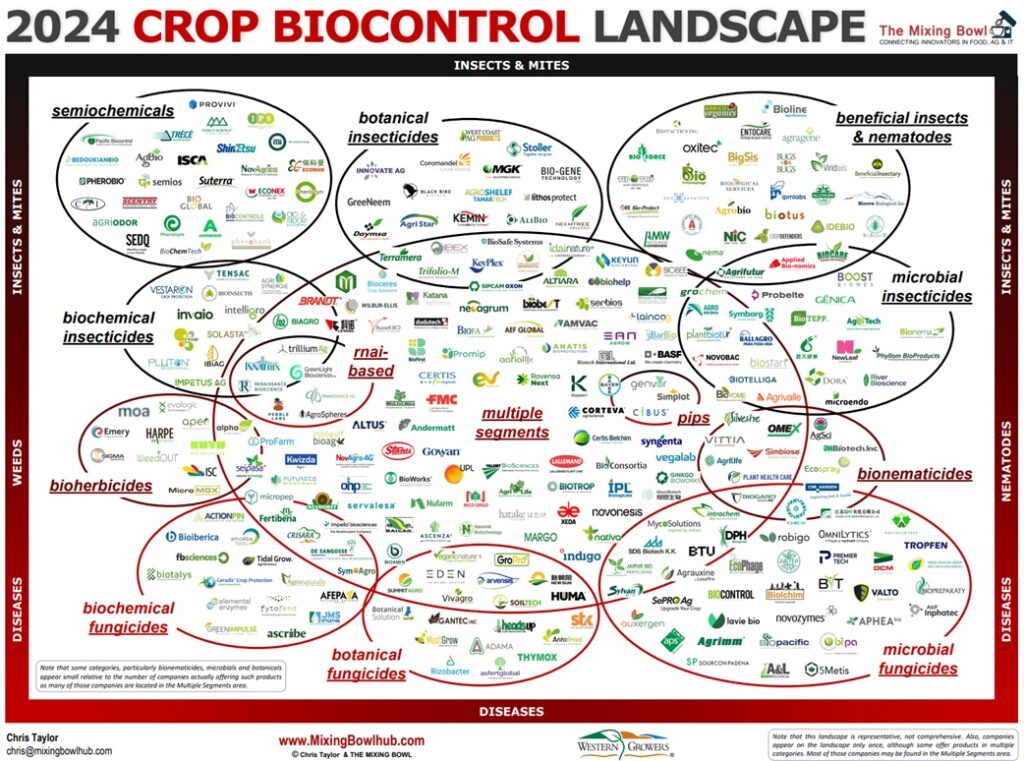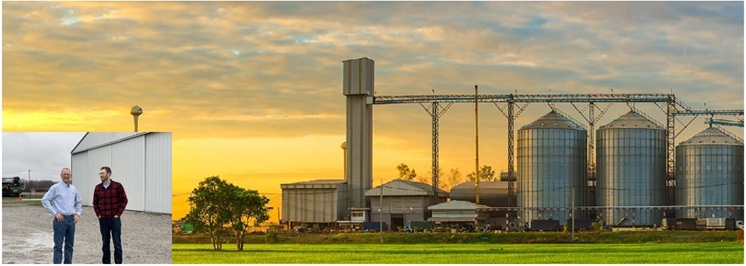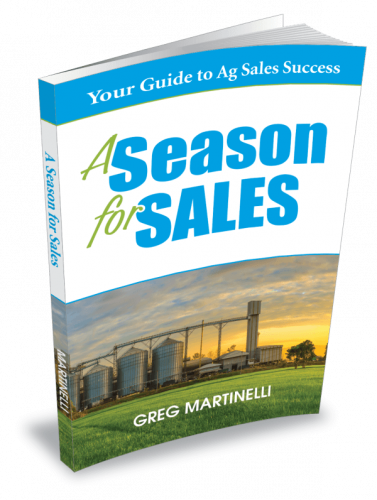How to overcome the biggest challenge to selling biologicals
After reading through a recent survey conducted by Crop Life Magazine on selling biologicals, I think it’s important to understand a key element from that survey. While the survey focuses on crop producers, you could easily adapt this to selling certain livestock products as well. Animal health and supplement products fit into a similar category: direct-fed microbials, essential oils, etc.
For the past several years, Crop Life has surveyed agribusiness companies that market biologicals. They asked these companies what the major reasons are that producers will not adapt to using biological products.
Over the last three years, the answers remained fairly steady. As with any data set, there can be many interpretations, but I think it’s worth making some observations of the results. Then, you can take these observations and dig into your specific customers and their adoption rate of biologicals. Over the last three years, the answers remained fairly steady. As with any data set, there can be many interpretations, but I think it’s worth making some observations of the results. Then, you can take these observations and dig into your specific customers and their adoption rate of biologicals.
Insight: Trust in product performance 40-50%
This is the most significant insight from the survey. The number one reason given was that producers don’t believe the products actually work. While this number has improved over the last few years, roughly forty percent of companies still feel producers don’t believe biologicals work as well as promised. That seems to be the biggest hurdle facing anyone out there trying to sell biologicals. Producers have to believe in them. But first, sales reps have to believe in them.
As a company, the first sale has to be to your sales team. They have to understand the efficacy of the products in various soils, with various crops, and growing conditions.
The reason the sales team’s confidence in your products is so important is that data alone will not solve the trust problem. If you look at the number of companies in the biological space, you quickly realize the biological market is cluttered and noisy with data. Hundreds of companies with thousands of products. In the Crop Life survey, 72% of the companies polled said they were going to launch new products in 2024. Making the market even more confusing for producers.
The picture below from The Mixing Bowl’s latest Biocontrol Landscape is a great example of how confusing this Billion-dollar industry can be. If you are selling to producers, your company is either going to be in the biologic market or is directly affected by it.

So, how do we actually build trust in the biologic products we sell? Building trust comes down to three primary components.
First, Credibility: credibility is based on product performance. That’s obvious. Your products have to work on the crop and soil you are recommending it for. However, that’s not good enough. Most of your competition will as well. The next credibility is user data credibility. It’s not enough for you to cite your company research. You need actual producers who have used it and can give credibility to the product. Credibility is still not complete. The closer geographically your producers are, the more likely they are to believe it. However, that’s still not good enough to be completely credible. The next credibility hurdle is the most important: your credibility as an agronomist or nutritionist.
Many factors determine this, but the first is your ability to make sense of the noisy biological market. Help your producer by reducing the confusion. The saying, “The confused mind says ‘No” applies to biological products. Become a student of this industry. It’s only going to get bigger. Find ways to make it simple. Pictures, videos, and stories are great ways to explain complicated issues so they will be remembered.
Next, find or design an easy decision tree format that a producer can use to determine which products should be considered on their farm. This makes it possible to eliminate big segments of these products and narrow down to the most likely beneficial ones. Obviously, a producer can’t use them all. And using none might be ok for now, but not a likely option as we relook at future conventional product availability.
After helping them make a decision, help them design an implementation strategy. This will be based on how they like to make changes. Look at their DISC profile to determine if they make decisions based on D(control), I (influence), S (calmness/no drama), or C (data/accuracy). Each producer or member of the decision makers on that farm will have their own preference. If you are working with a gatekeeper, then ask who and how the group makes decisions like this. In any case, most often, a producer is going to start small and work up to higher usage rates on more acres. This means the sale is a long-term relationship sale. Begin now to build your credibility with these products, one producer at a time.
Second trust factor: Reliability. After providing as much credibility in you and your products, the next concern for building trust is reliability. That means the products work consistently. If the products consistently produce $20/acre, year in and year out, then it is easy for a producer to invest $5 or $10 per acre. However, if it’s hit and miss, or worse, then the risk is too high when crop margins are near breakeven. Expect them to maybe risk $2-3/acre or not at all.
Look to the internal research you have for this info. Your supplier and your company sales team who sell the products can give you some of this insight.
The last trust factor to consider: Self interest vs others.
Producers have a very good intuition to your approach when recommending products. They can sense whether you are trying to help them or you are pushing a product. If they get the feeling that you are pushing products due to making sales, they will quickly determine you are more interested in yourself than helping them. Most of the successful salespeople in Ag understand this and try not to violate that trust.
However, there is a gray area. That is when the salesperson is so convinced their products truly are the best thing in the market and are too biased towards them. I call it a gray area because I certainly think every salesperson should be convinced their products work and recommend them. The dark side of that is when they see their products as the only solution or the best solution for every producer.
While I wholeheartedly believe in the products I sell, I do realize that crops and livestock can be produced on my competitor’s products. We have to remind ourselves that our competition is out there doing and sounding exactly as we do. So, going into a sales call with too much bias will erode your trust with a producer.
Increase trust with better questions!
Start the biologic sales call the same way you should start every sales call: with a lot of questions. Question their history with the products. Question their opinion of them. Who and where are they looking for information on biologic products? What other producers in the area are using them and their success with them?
Before you ever lay down a brochure or plot data sheet on your biological products, get as many of their cards on the table as possible.
As more surveys and results come out on this industry, I’ll publish more about the other insights, such as
- Too Expensive 20%
- Conventional products work better 14%
Best of luck as you bring better solutions to your customers!


